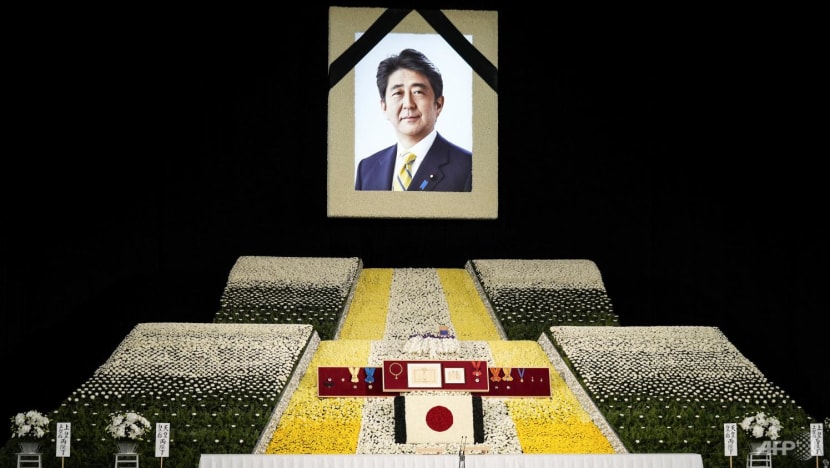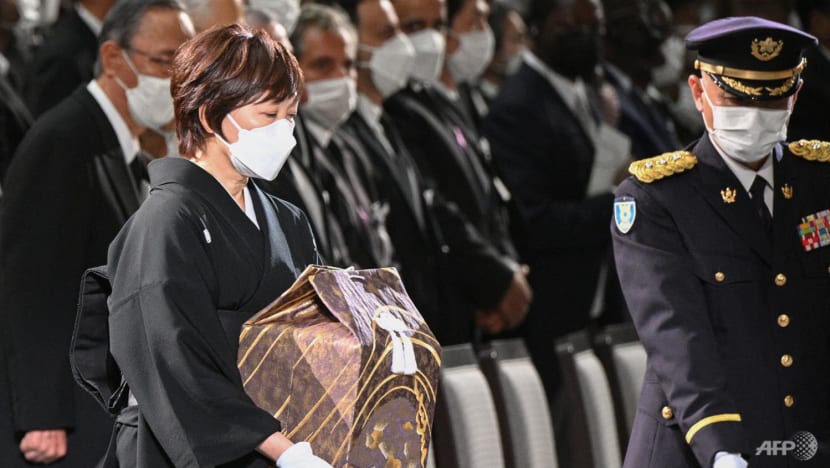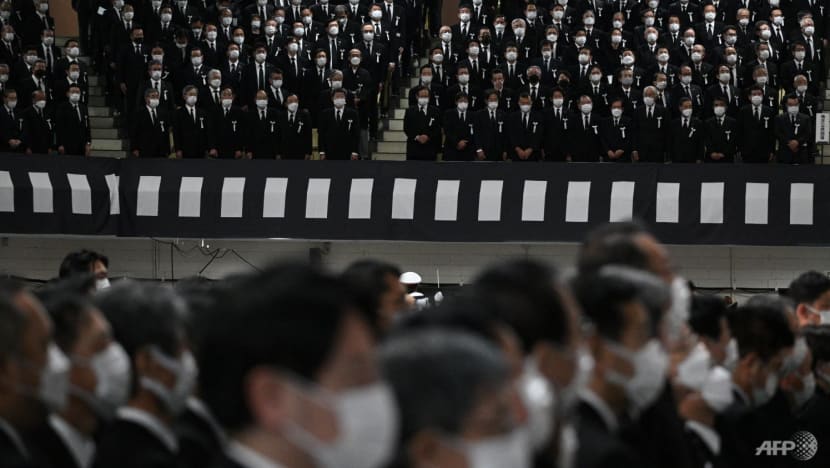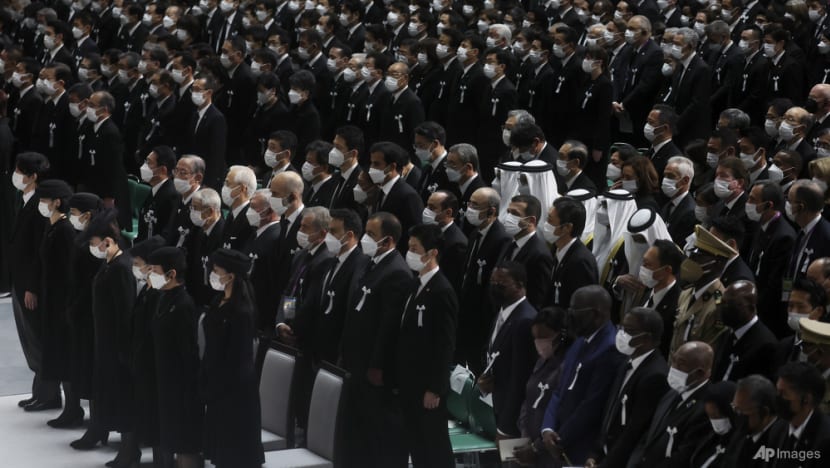With flowers and a gun salute, Japan bids farewell to slain Abe at state funeral

A photograph of Japan's former prime minister Shinzo Abe is displayed during his state funeral in the Nippon Budokan in Tokyo on Sep 27, 2022. (Photo: AFP/POOL/Franck Robichon)
TOKYO: With flowers, prayers and a 19-gun salute, Japan honoured slain former Prime Minister Shinzo Abe on Tuesday (Sep 27) at the first state funeral for a former premier in 55 years - a ceremony that has become as divisive as he was in life.
The ceremony started at 2pm, with Abe's ashes carried into the Nippon Budokan Hall in central Tokyo by his widow, Akie, to music from a military band and the booms of the honour-guard salute.
Inside the Budokan, better known as a concert venue, a large portrait of Abe draped with black ribbon hung over a bank of green, white and yellow flowers. Nearby, a wall of photos showed him strolling with G7 leaders, holding hands with children and visiting disaster areas.
US Vice President Kamala Harris and world leaders, including Indian Prime Minister Narendra Modi and Australian Prime Minister Anthony Albanese, were among those attending the state funeral.
The motorcade carrying Abe's remains had travelled from his widow's home in the capital, past a row of white-uniformed armed troops who stood to attention.
Outside the Budokan, thousands of Japanese people stood in line as the ashes arrived, waiting to deliver flowers and say a prayer in two mourning tents.



Abe was Japan's longest-serving prime minister and one of the country's most recognisable political figures, known for cultivating international alliances and his "Abenomics" economic strategy.
He resigned in 2020 over recurring health problems, but remained a key political voice and was campaigning for his ruling party when a lone gunman killed him on Jul 8.
The assassination sent shockwaves through a country with famously low gun crime and prompted international condemnation.
But the decision to give him a state funeral - only the second for a former prime minister in the post-war period - has provoked growing opposition, with about 60 per cent of Japanese against the event in recent polls.
The US$11.5 million price tag will be borne by the state at a time of economic pain for ordinary citizens.
Thousands have protested the ceremony and a man set himself on fire last week near the prime minister's office, leaving notes reportedly expressing his objection to the event.
Some lawmakers from opposition parties are also boycotting the funeral altogether.
The controversy has various causes, with some accusing Kishida of unilaterally approving the funeral instead of consulting parliament, and others resentful of the cost.
It is also the legacy of Abe's divisive tenure, marked by persistent allegations of cronyism, and opposition to his nationalism and plans to reform the pacifist constitution.
Mourners will hear eulogies from Kishida and politicians including Yoshihide Suga, who succeeded Abe after his resignation.
Japan's emperor and empress are not attending, as neutral national figures, but Crown Prince Akishino and his wife are expected to lead mourners in offering flowers at the end of the 90-minute service.











